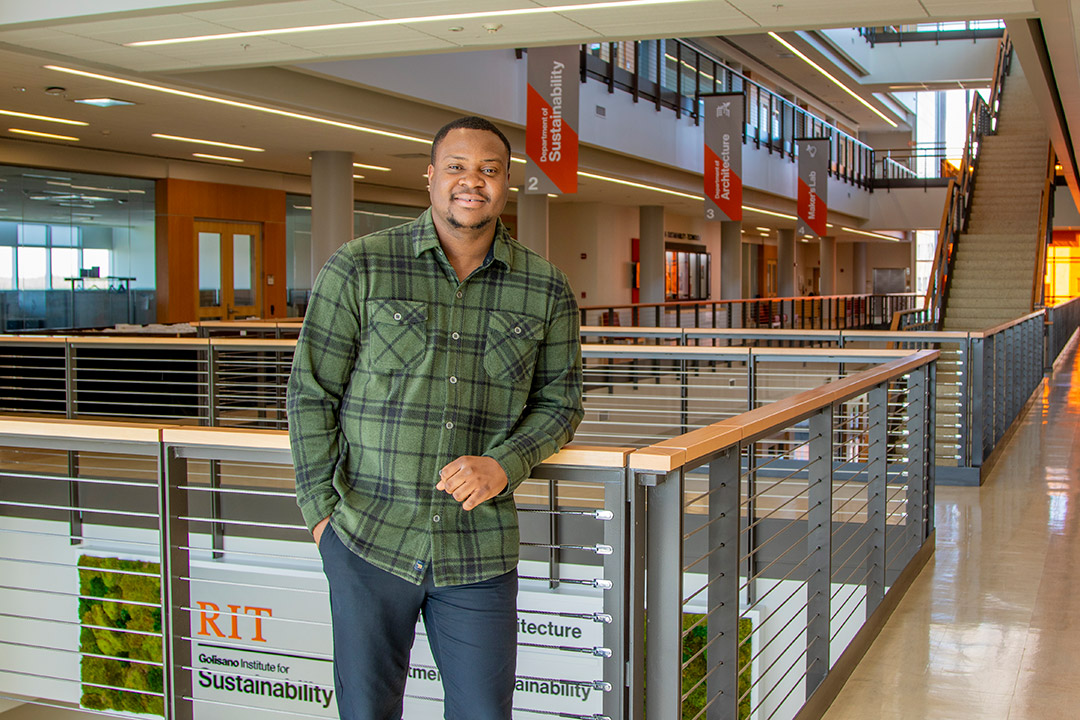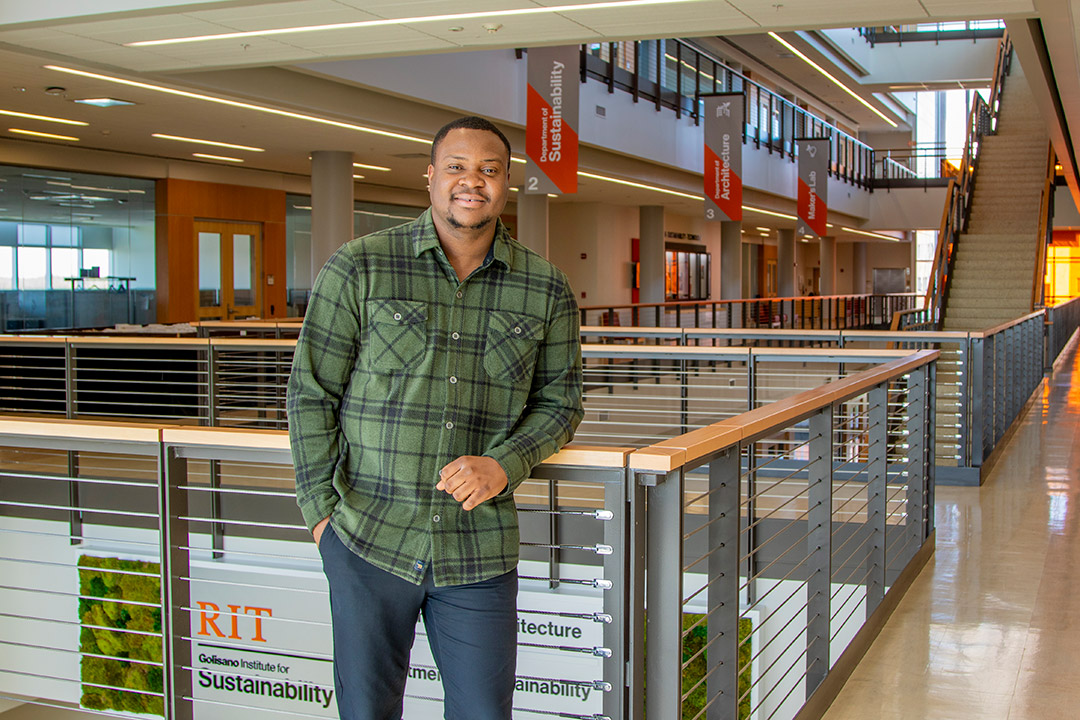
Mia M. Muller
Sustainability Ph.D. graduate Tunmise Raji applies his RIT experience to develop advanced, data-driven energy solutions for underserved communities worldwide.
Tunmise Raji came to RIT with a vision to harness technology for global good. He’s leaving prepared to advance energy solutions for underserved communities.
Raji, a Ph.D. candidate at Golisano Institute for Sustainability (GIS), is one of 56 people who will be honored at Commencement on May 9 in the doctoral hooding ceremony.
A native of Nigeria, Raji grew up in a nation known for power insecurity. In some areas, frequent power outages due to aging and overstressed infrastructure and a shortage in supply result in residents going weeks without having access to electricity, a common challenge in many countries in Sub-Saharan Africa.
After studying electrical engineering abroad, Raji completed his master’s degree at Carnegie Mellon in 2019, where he studied under Professor Nathan Williams.
After earning his master’s degree, Raji worked in Uganda for two years, developing renewable energy projects aimed at electrifying small villages across East Africa. He was eventually invited to apply for a new Ph.D. opportunity in GIS by Williams, who joined RIT in 2020.
“From taking his class, I knew we had a shared interest in Sub-Saharan Africa and data-driven research, so it felt like the perfect opportunity,” Raji said.
Raji’s research focuses on using sustainable infrastructure development to drive progress in the Global South. In one recent study with Williams and fellow Ph.D. student Courage Ekoh, he examined the Nigerian energy landscape, advocating for a hybrid approach that blends centralized grid and off-grid sustainable solutions to create a more resilient, inclusive power system.
Raji credits much of his growth to the mentorship and diverse learning environment within GIS. Along with the direct impact that Williams made on him, he also highlighted the impact of Professor Callie Babbitt’s classes, which emphasized the three interconnected legs of sustainability—environmental, economic, and social.
“Being in GIS, you’re able to interact with people from all walks of life,” Raji said. “It really helps you to put your research in the right perspective. It’s not siloed in one particular field, but actually more applicable to the rest of the world.”
Outside of the classroom, Raji has attended and presented at conferences in Morocco and China, organized a two-week training on remote sensing for the National Institute of Statistics in Rwanda, and landed a pair of fellowships through the Environmental Defense Fund. In those fellowships, he helped develop a transportation electrification plan in Durham, N.C., and examined strategies with Element Fleet Management to shift the company’s fleet from internal combustion engines to electric fleets. He plans to continue that momentum beyond graduation.
“Tunmise has been such a pleasure to work with,” Williams said. “He is full of ideas and so driven by curiosity. He really made my job as an adviser easy. It is fantastic to see our students not just pushing scientific boundaries but also using their skills to benefit the global community more directly.”









